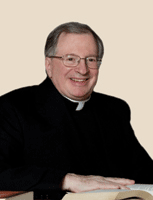They were the heroes of my youth. The French called them les hommes engagés. U.S. historians styled them “action intellectuals.” Both terms referred to men and women of learning who employed their knowledge to change society. The church, too, had its own “organic intellectuals,” thinkers who conducted their scholarship in solidarity with the poor.
The best-known European homme engagé was the Algerian-born Albert Camus, famous for his existentialist novels, The Stranger and The Myth of Sisyphus, but whose strongest books, The Plague and The Rebel, were works of social commitment. His last novel, The Fall, evoked a world weighted down with sin, where the intellectual was a voice crying in the wilderness. In Italy, there was the Christian Marxist Ignacio Silone, whose novels, like Bread and Wine and Fontamara, projected a pure gospel free of the encrustations of church history and dedicated to service of the poor. His Story of a Humble Christian celebrated Celestine V, the hermit pope who resigned the papacy and was assassinated for it.
The author David Halberstam numbered American action intellectuals, like McGeorge Bundy, the Harvard dean turned Kennedy national security adviser, among “the best and the brightest.” They came from the academy and, initially at least, put their learning to work in the service of society.
Lacking not only the breadth of European intellectuals but also their attachment to ordinary people, American action intellectuals were in want of the faculty of self-examination that helped many Europeans acknowledge their own failings even as they denounced the follies in the society around them. In contrast, the Americans tended to become establishment figures wholly lost in the games of power politics.
The church was not without its own activist thinkers. Msgr. Ivan Illich, for example, was a man of ideas on a mission to save Latin America’s poor. The late Denis Goulet almost single-handedly founded the study of the ethics of development. Another, Gustavo Gutiérrez, adopted the term “organic intellectual” to express links between theologizing and the option for the poor.
Unhappily the U.S. church today lacks intellectuals of the same breadth of interest and depth of dedication to the poor. Intellectuals have either been tamed by the media or dismissed by the academy, in favor of overspecialized academic achievers. Within universities the social activists who remain have been segregated in their own institutions, outside the mainline academic departments. Occasionally, however, some thinkers genuinely committed to the poor and to the church do survive on campus. One is Daniel Groody, C.S.C., at the University of Notre Dame; another is David Hollenbach, S.J., of Boston College (disclosure: both are friends of mine).
In A Promised Land, A Perilous Journey, Theological Perspectives on Migration (Notre Dame), Groody and Giocchino Campese, a Scalabrini priest, have brought together experts from many fields to explore the experience and the meaning of Latin American migration to the United States. In an eye-opening essay, for example, Jacqueline Hagan reports on the exceptional role that faith and religious ritual play in the lives of migrants, who have their own prayers, patrons and even pilgrimage sites. This summer, in line with his committed research, Groody will do field work with border patrols and refugee agencies on the Slovak-Ukrainian border and on the Italian-Albanian and Spanish-Moroccan maritime frontiers.
In Refugee Rights: Ethics, Advocacy and Africa (Georgetown Univ. Press), David Hollenbach, S.J., and more than a dozen other scholars probe an issue he first took up in these pages (“There Is More Than One Way to Die,” 1/15/07), namely, the absence of effective legal protections for people who have been forcibly displaced, whether refugees who have fled their home countries or internally dispersed persons who have had to flee their homes but remain within the borders of their native lands. Ministry to refugees and migrants (see articles in this issue) is at the growing edge of the church’s service to the world today. Groody and Hollenbach demonstrate that in some centers of American Catholic learning, the tradition of the intellectual in service of the poor remains alive.








